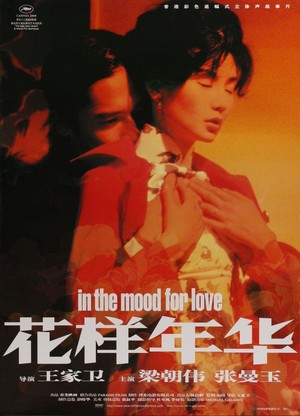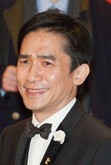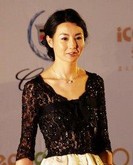
Faa Yeung Nin Wa (2000)
In the Mood for Love / Hua Yang Nian Hua / 花樣年華

Raiting: ![]() 8,2 /10
8,2 /10
Genre: Drama
Director: Kar-Wai Wong
Stars: Maggie Cheung, Tony Leung Chiu-wai and Ping Lam Siu
Country: Hong-Kong / China
Release date: 29 September 2000
Length: 98 minutes


